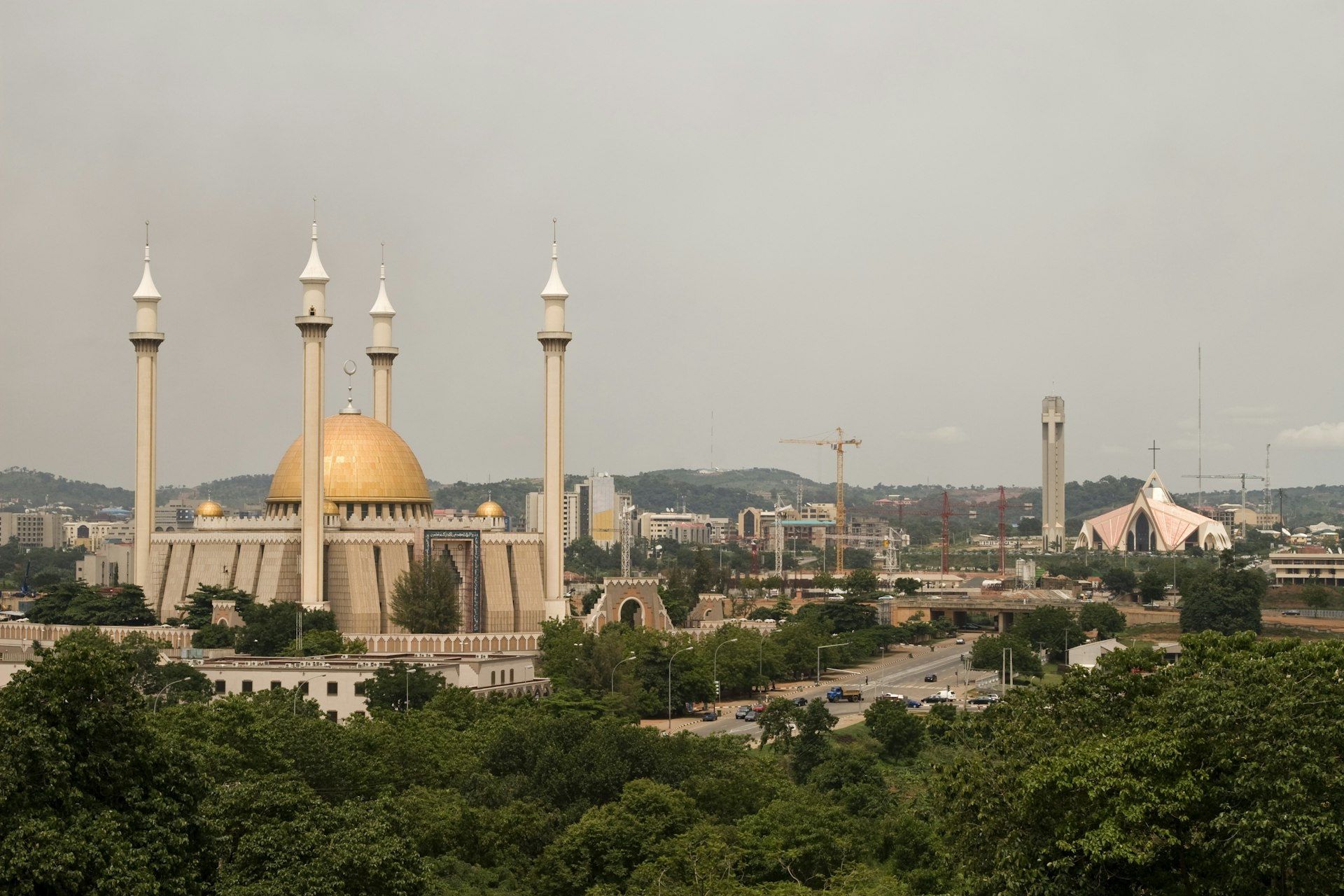
After they have spent a day or two in Nigeria, most visitors are surprised to see that the country is so much more than its reputation for scam artists and kidnappings. Shake off that image, and your trip could turn out to be one of your most fulfilling travel experiences.
The moment you step out of Murtala Muhammed International Airport (MMIA) – the default port of entry for most international visitors – you’ll immediately sense that you’re entering a world of wonder and contrasts.
You’ll find some of that wonder in Nigeria’s everyday people who are hard-working and full of life, in its centuries-old festivals and vernacular architecture, not to mention the legacies of ancient empires and kingdoms. If food is the reason you travel, then prepare to be wowed by an unbeatable range of local cuisine.
Plan the perfect visit to Nigeria with these top tips and things you should know before you go.
Make the most out of every adventure with help from our weekly newsletter delivered to your inbox. .jpg?auto=format&q=75&w=1920) There are around 200 million people living in Nigeria © Emmage / Shutterstock
There are around 200 million people living in Nigeria © Emmage / Shutterstock
1. Stay up to date with the latest protocols
For the second time in under a year, Nigeria has revised its COVID-19 protocols. The most recent, announced last March and effective in April, drops mandatory PCR tests for fully-vaccinated international visitors. Check the online travel portal of the Nigeria Centre for Disease Control (NCDC) for additional guidelines.
2. If you qualify, apply in advance for a Visa on Arrival
The Nigerian government recently introduced a Visa on Arrival service for tourists, business travelers and citizens of African Union countries. Issued by the Nigeria Immigration Service, and valid for 90 days, it also covers visitors traveling from countries where Nigeria has no embassy or mission. Details for which nationalities qualify for a Visa on Arrival are available at the Nigeria Immigration Service (NIS).
The key requirement here is that someone must apply online on your behalf from Nigeria, no earlier than 14 days before your departure date. Even when they get a Visa Approval Letter, visitors are sometimes delayed by needless formalities at the airport. It helps to have your host deal with the red tape that could surface on the ground.
3. Book short-let serviced apartments online in advance
Nigeria’s healthy hospitality industry is complemented by a fast-growing real estate sector. This means that besides standard hotels, you can choose from a wide range of short-let serviced apartments, which can be booked easily online; the advantage here is that you can see everyday Nigeria play out at close quarters. Many Nigerians returning home for holidays use this option for their accommodations.
At the moment, there is no centralized service or regulation. There’s been a boom post-pandemic, and most properties are in Lagos. Check Airbnb, Booking.com and other home-grown platforms, including shortlethomes.net, shortletrentals.com and plistbooking.com
4. Pack light clothing to stay cool
Nigeria is in the tropics, so humidity and heat are constant companions. With average temperatures ranging between 30–34°C (86–93°F), you will be sweaty for most of the day. Pack light cotton fabrics, shorts and t-shirts.
There are two broad weather seasons, rainy and dry; the southern half of the country has longer periods of rain than the northern half. Nearer to the southern coast, the vegetation is the tropical rainforest. As you head further north, it gradually gives way to savanna plains and desert landscapes. In addition to sunscreens, it’s advisable to have a bottle of water handy when outdoors.
 Nigeria’s population is a near even split of Muslim and Christian faiths © Lingbeek / Getty Images
Nigeria’s population is a near even split of Muslim and Christian faiths © Lingbeek / Getty Images
5. There are many cultures in Nigeria
Nigeria is a country of multiple identities. For context, Nigeria – all 973,000 sq km of it – is 2.5 times the size of Germany. With a population of roughly 200 million, almost evenly divided between the Christians and Muslims, it’s splintered into more than 250 ethnic groups and at least 500 dialects. Plus, there are layers and layers of cultural and political history.
6. Keep calm at Lagos airport
It can be a hassle to pass through Immigration and Passport Control at the MMIA. There are many reported cases of officials soliciting tips, but this is not unique to foreigners: Nigerians returning from trips abroad face the same scenario. Arrival formalities are less stressful at the international wing of the newer and neater Nnamdi Azikiwe Airport in Abuja, the country’s federal capital.
It’s always good to know someone on the ground who can be reached in the case of any incident. Usually, whatever it is can be resolved with a phone call or two with a local contact.
Nigerians detest it when officials “ask for a dash” (a gratuity or bribe). They might oblige on a good day, but will flatly refuse and move on at other times. Because travelers won’t have the local currency (Naira) on them on arrival, they should politely decline, with a smile.
7. Have a local meet you at the airport or help negotiate taxi rates
Lagos has a reputation for being disorderly. With about 20 million residents, it is also a very crowded and noisy city. But in those unappealing vistas lies its charm and magnetism, for both Lagosians and visitors alike. If you can cut through that jumble, it’s bliss afterward.
Be warned: driving around Lagos, as a recent visitor observed, is like racing in Formula 1. With scarce road markings and traffic signs, not to mention carefree motorists in danfos and kabu-kabus, it requires deft driving skills to move around.
Wherever your flight lands, it’s best to arrange in advance for a resident to pick you up or help negotiate with airport taxis. In Nigeria, bargaining is a fixture of everyday living. In addition to taxis and bus shuttles, there’s a light rail shuttle at Abuja airport that goes to the city center and terminates at the Idu Station.
8. Expect friendly greetings and small talk
Nigerians naturally warm up to visitors of all shades and are known to lavish greetings on guests. Either in person or on the phone, the greetings are typically small talk, and will simply be questions about how your trip was, what brings you to town, and how are your family back home. They then bid you to enjoy your stay.
Your host or guide should be able to walk you through this pleasant ritual. Every day Nigerians are excited by the sight of Westerners. They’ll usually wave at you happily, saying, “Oyinbo, how are you?” Aside from waving back, nothing much is expected of you other than “I’m fine, thank you” or a smile.
.jpg?auto=format&q=75&w=1920) If you get invited to join a wedding or birthday celebration in Nigeria, go! © Ayo Emmanuel / Shutterstock
If you get invited to join a wedding or birthday celebration in Nigeria, go! © Ayo Emmanuel / Shutterstock
9. Attend a Nigerian celebration in an aso ebi
Don’t let the pervasive poverty mislead you – Nigerians are happy people who have learned to make lemonade from lemons. We hustle almost every day of our lives, but we also socialize a great deal, usually at birthday and wedding celebrations. If you’re lucky to be invited to one while you’re in town, be sure to accept and get your aso ebi – the clothing Nigerians wear at family or social functions. Families or celebrants will choose a fabric type and design and make it available to guests for a price. Guests then have them fitted in whatever style they please and wear it on the day of the celebrations. This experience could very well be the high point of your visit.
If you can’t get an aso ebi, a traditional Nigerian dress can be made within 48–72 hours. It begins with going to get the fabric at an open market, and finding a neighborhood tailor who will sew it. Alternatively, clothes can be bought ready-made at malls and boutiques, but they will cost more.
10. Learn some pidgin
English is Nigeria’s lingua franca, and the average person you meet can hold a conversation in English. But for everyday dealings, Nigerians talk among themselves in pidgin, bridging the language divide. A good number of the expatriate community, the Asians in the main, have mastered this over the years and speak it fluently.
A few key pidgin phrases in everyday use:
How now?/How you dey? – How are you?
Abeg – Please
No wahala – No problems
I wan go market – I’m going to the market
Na wa ooo – I’m surprised/shocked
I no get change – I don’t have spare money to give (a perfect phrase should airport officials ask for money).
11. Make room for worship times
Nigeria is a maze of mosques and churches, and Nigerians are passionate about their religions. On Fridays, neighborhood streets and major roads may be blocked for juma’at prayers, resulting in temporary traffic. In some areas, markets and shop fronts may be closed for the same reason. On Sundays, the Christians, elegantly dressed and sprightly, flock to church in their millions. Keep these in mind while planning your schedule.
12. Malaria is a risk
As a traveler in Nigeria, your greatest concern should be malaria, the bane of Western visitors for decades but now treatable with an injection or drugs available over the counter at standard pharmacies.
To keep the chances of mosquito bites low, carry and use insect repellents as often as medically recommended. Better still, get medical advice before traveling or check the latest recommendations by the Center for Disease Control (CDC) on prevention and treatment. Wear long-sleeve tops and pants if you’ll be walking in forests or parks.
13. Drink bottled water
There is no reliable public water supply in most parts of the country, and the population depends largely on privately-funded sources. Outside the hotels and restaurants, you’ll find bottled water on sale almost everywhere you go – on highways and in supermarkets. They’re safe to drink if you’re outdoors and feel a sudden need to rehydrate.
14. Chances of kidnap are low
Unless you’re venturing into remote areas, the chances of being kidnapped in a Nigerian town or city are low. As a precaution, some hosts hire private security personnel for their international guests. In the event of an emergency, you may call the federal emergency lines (112 or 119), or find and report to the nearest police station.



